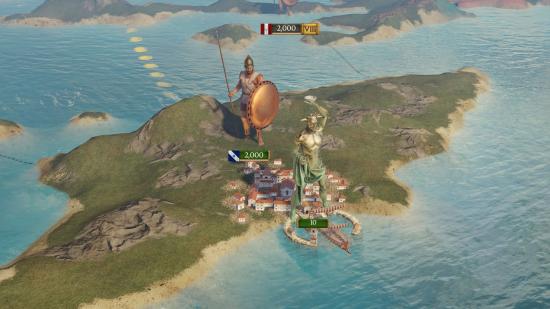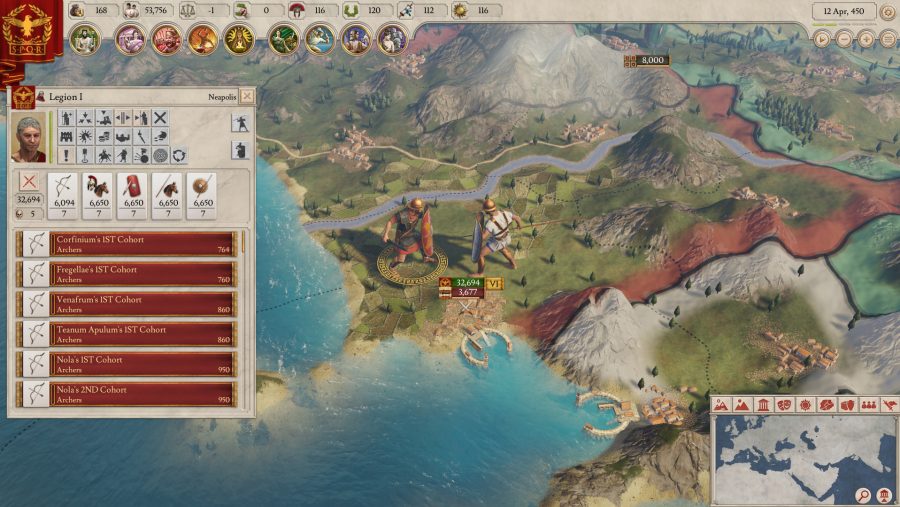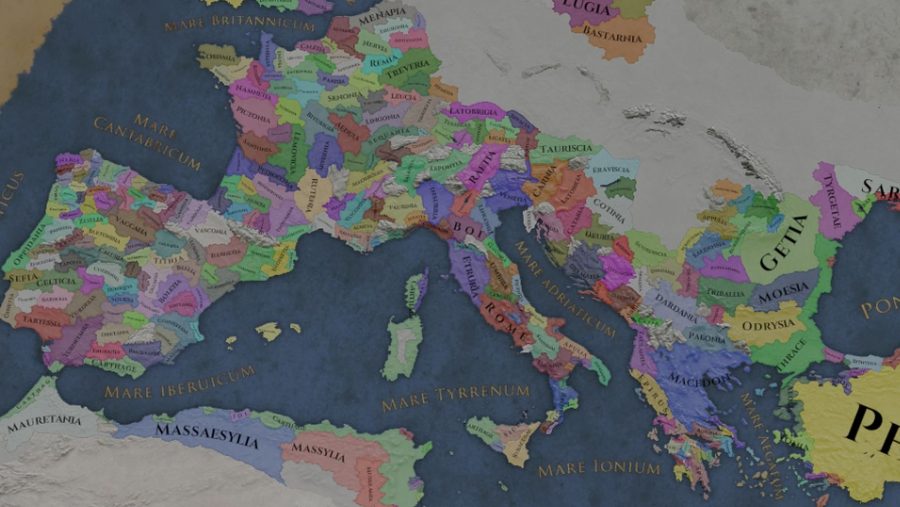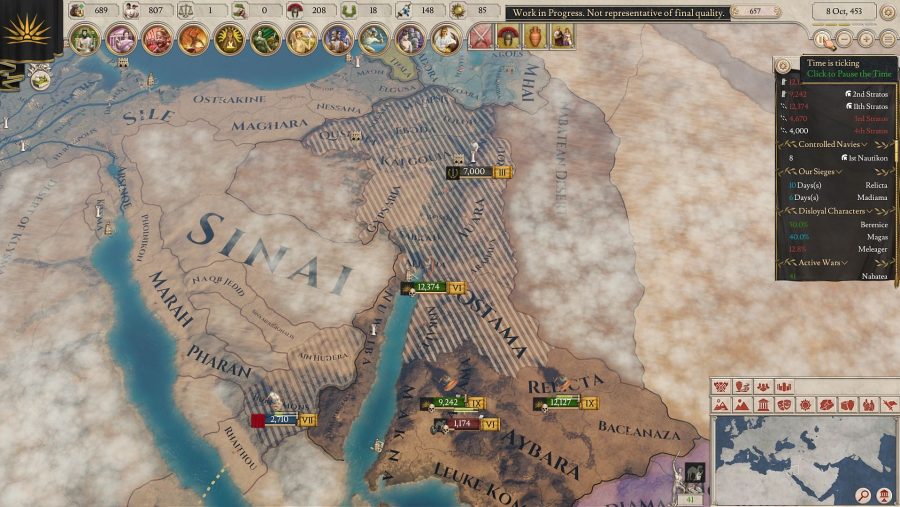What’s your favourite piece of Roman music? If you can remember any, please do let the historians know. While the empire’s architecture, civil engineering, and military formations have become a celebrated part of pop culture, it’s been a celebration with the sound turned off.
Before the printing press, music could only be passed down orally or by hand – which is to say, it mostly didn’t make it. While the masterpieces of Mozart or Schubert are preserved down to the note, Roman musicians can only be seen playing their instruments on mute in mosaics.
For Peter Nicholson, who spent a decade working as a classical singer and organist with a particular focus on early music before joining Paradox, the making of Imperator: Rome has presented some familiar challenges. The grand strategy game begins in 450AUC – literally, just a handful of centuries after a bloke named Romulus decided it was time to stop suckling she-wolves and settle down. Even the ancients thought these guys were ancient.
“A lot of what we’re covering is badly documented to say the least,” Nicholson tells us. “We do as much research as we can into what’s there, and in Imperator: Rome there are a lot of areas where there’s nothing – or if there is anything it’s not of sufficient detail to be able to accurately assess.”
It’s not for lack of trying. Paradox Development Studio doesn’t use Wikipedia. There’s an office library instead, order found in books, where the team pores over the primary sources and academic writing of online collections like JSTOR. But even for a studio as steeped in the past as this one, true historical authenticity is an impossibility.
“Authenticity I think is is the wrong word, perhaps,” Nicholson says. “A completely accurate depiction of Roman politics is never going to happen. It’s not something that you can gamify.”
While it was Nicholson’s amateur modding rather than his musicianship that landed him the job at Paradox, there’s one sense in which that classical background helps in the design of Imperator: Rome – a spirit of interpretation.
“When we performed early pieces, like Bach or Handel, a historically informed performance was what we used to aspire to,” he says. “It’s not necessarily an 100% accurate way of performing the pieces as they would have done 300 years ago. And in game terms, it’s not an 100% accurate way of depicting the Roman government or the state of the world. But it’s as near as we can get while still retaining fun.”
Borders, for instance, aren’t an especially useful way to depict the migrating tribes of the era – but they’re a grand strategy mainstay, and so Paradox does its best.
“It’s deciding what is an acceptable level of abstraction for representing history or maps through mechanics,” Nicholson says. “And on the other side of things, trying to make it seem historical plausible.”
Ultimately, the game’s map is something Nicholson is particularly proud of – taking in Britain, India, Scandinavia, and Ethiopia, without skimping on the details.
“The granularity that we’ve gone down to in Imperator: Rome is unprecedented as far as Paradox grand strategy games are concerned,” he says. “The size of the provinces means that we can do a lot more detail on a level that we’ve never done before.”
Nicholson already has one eye on the untouched spines of other tantalising books in the library – stories of the titans of the East, fighting over the spoils of Alexander’s empire.
“There are so many areas that are right for additional content,” he says. “It’s quite exciting thinking of all the ways that we can we can take it.”



